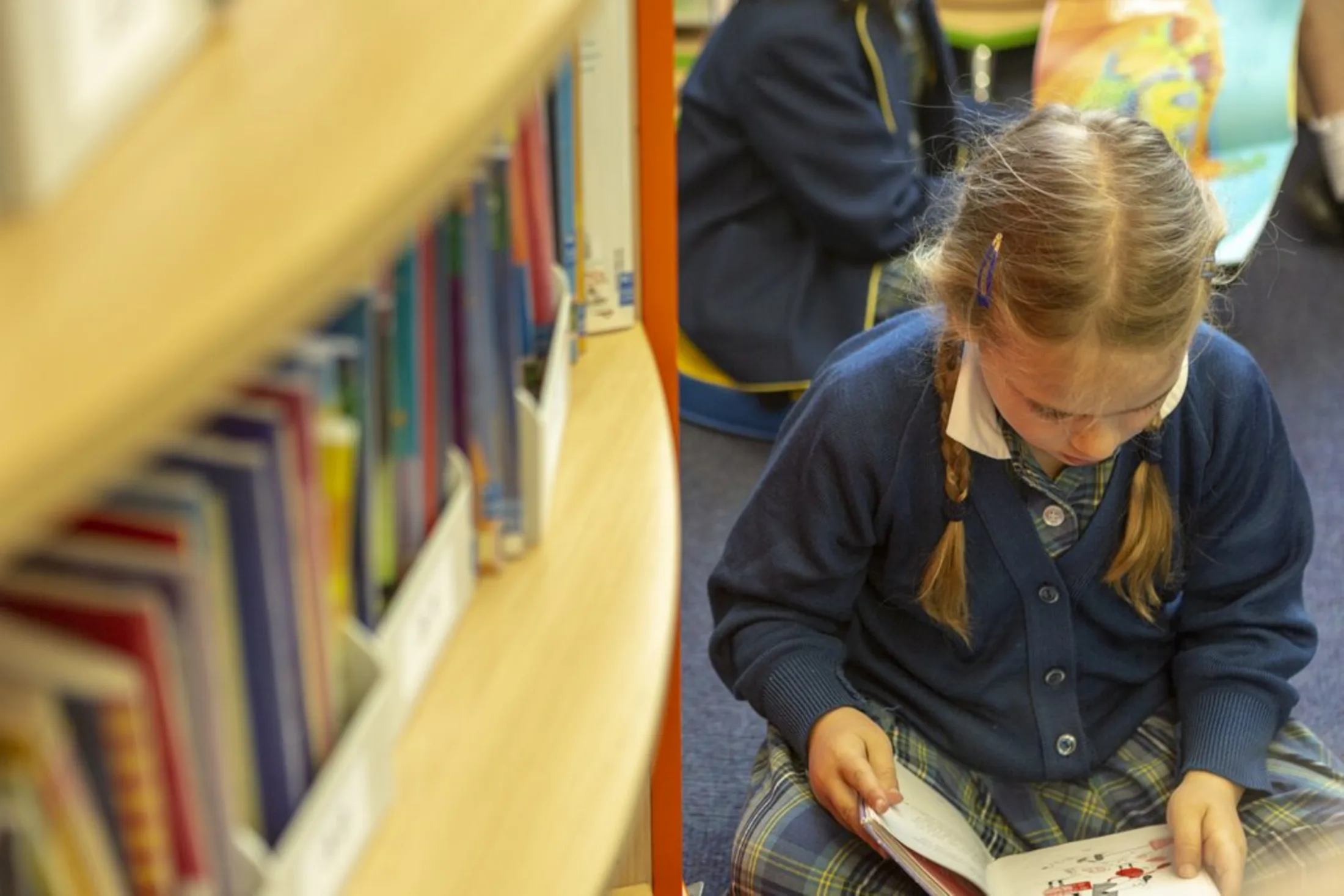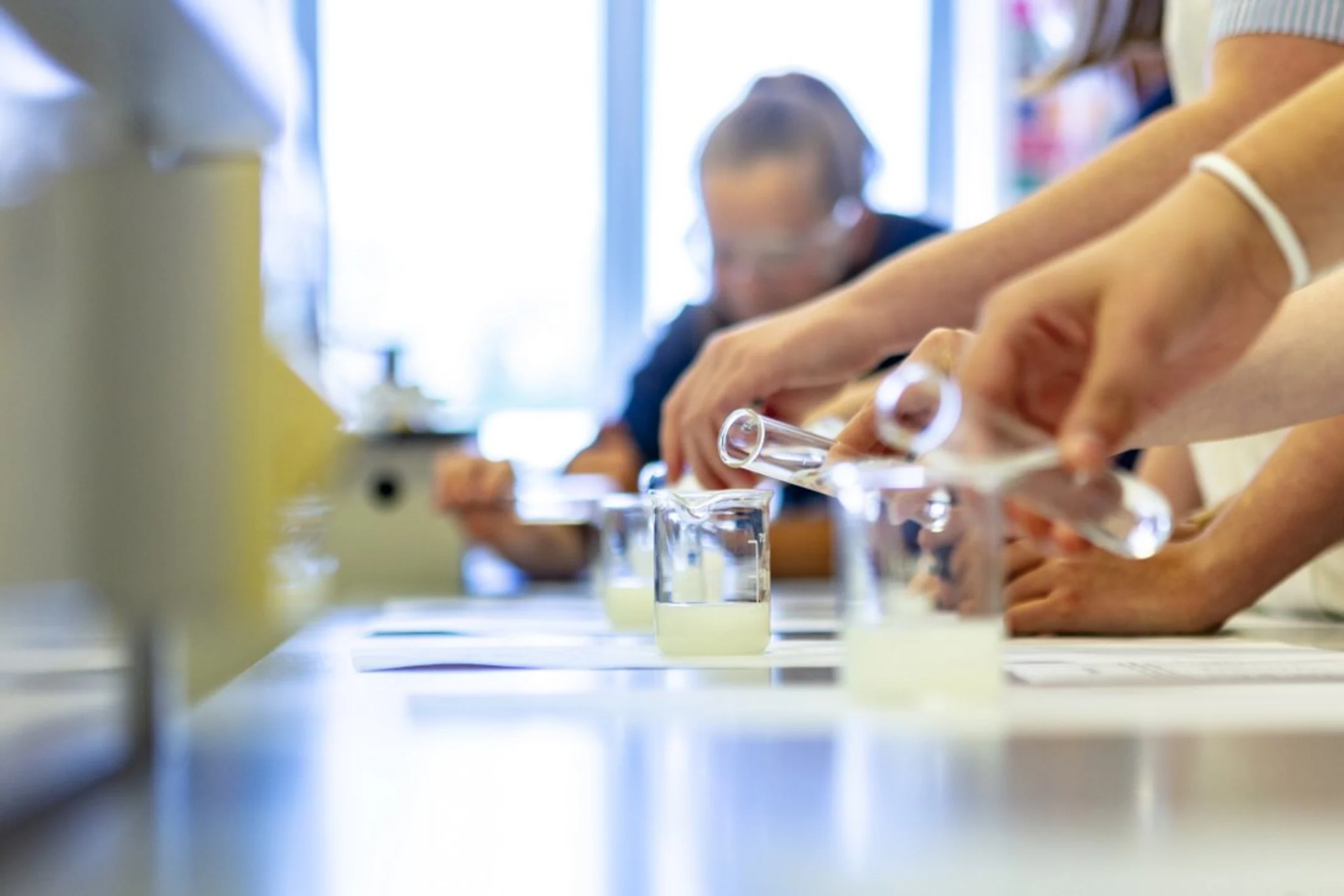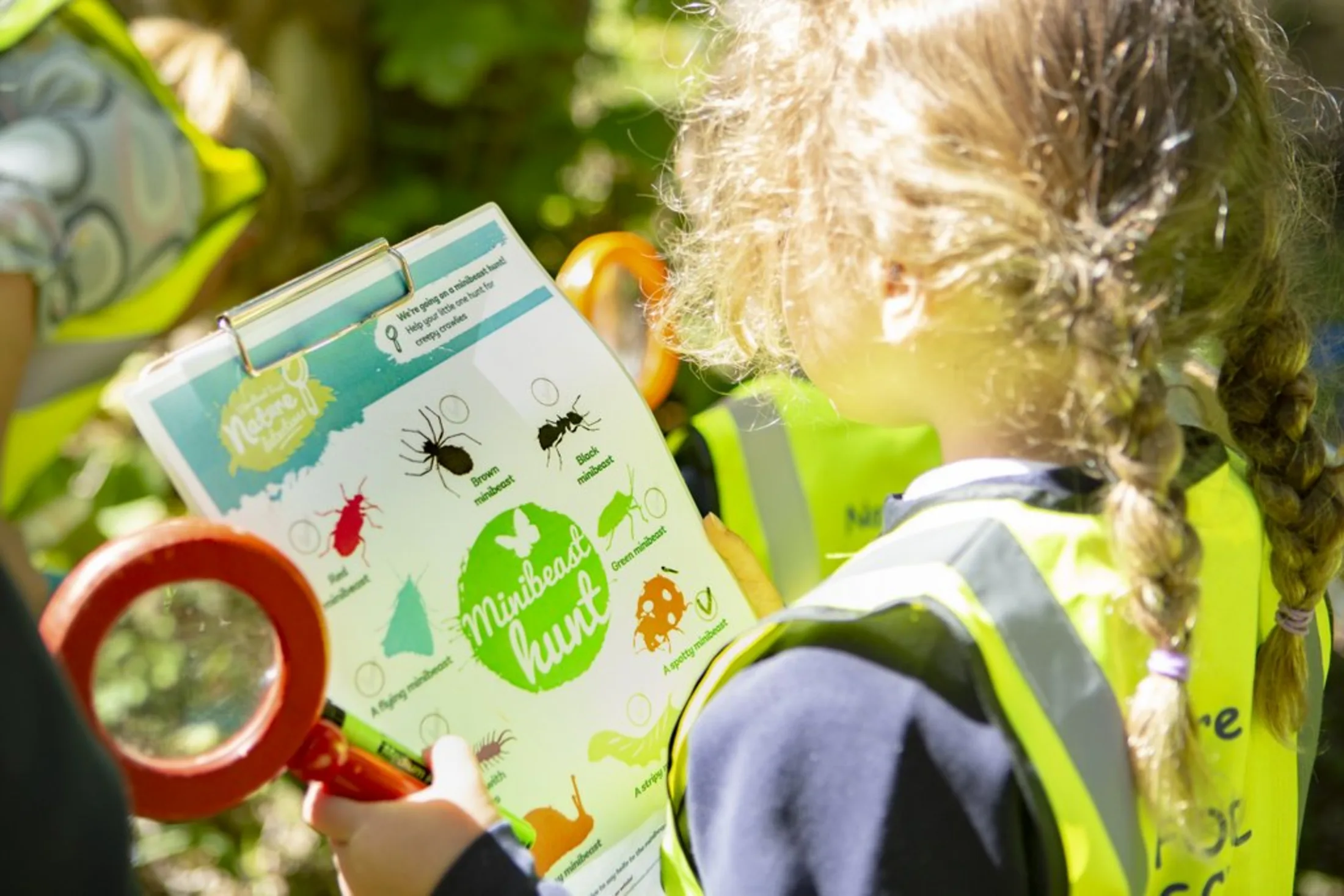Thinking Space
Academic rigour quite rightly sits at the heart of teaching and learning at Notre Dame. All students are supported and ecouraged to pursue their highest aspirations.


Growing Space
Everyone is different, with unique talents. Our aim at Notre Dame is to help every single students discover new interests so they get the maximum enjoyment and reward from their school years.
Breathing Space
We live in a society where examination focus from a very young age can detract from time spent building character nd vital life skills.
At Notre Dame we focus first on happines, and all else follows.

Mission Statement
In the spirit of Saint Jeanne de Lestonnac, our foundress:
‘WE ARE ALL EDUCATORS……. ACCOMPANYING YOUNG PEOPLE IN THEIR EFFORTS TO BUILD THEIR LIVES FOR TODAY AND TOMORROW.’
These words embody our Mission.
Notre Dame is a Catholic Independent School with a strong ecumenical tradition, respecting the faiths and cultures of all members of our community.
Our mission is built on a 400 year living tradition embodied by the Company of Mary Our Lady.
We believe that fulfilment comes through the recognition and nurturing of individual potential in all areas of endeavour.
We aim to fulfil our Mission Statement by:
- emphasising personal, moral and spiritual development, based on Gospel values, enabling each member to become a valued participant in the life of the community
- striving for personal academic excellence, offering learning experiences which will challenge each person
- providing wide-ranging opportunities, seeking to identify and develop talents in artistic, cultural and sporting pursuits
- fostering a strong relationship between family and school.
- In this way we seek to prepare young women for their role as responsible citizens of the wider world following in the footsteps of Jesus Christ.
Why an Academic All-Girls Education?
We are firmly committed to an all-girls’ education for children aged 4 and over.
That is because the research shows that girls in all-girls’ schools do better than those in mixed schools academically. In 2011 all girls’ schools from the GSA gained 6.8% more A* and A grades in U6 than girls in co-ed independent schools. Research has indicated that girls’ self-esteem is based less on physical appearance and more on academic and personal development in an all-girls setting. Girls at all-girls schools are also more likely to engage is what are perceived as non-female careers. 70% more girls take Mathematics, 90% more take Physics or Chemistry and 80% more take a Foreign Language if they are at an all-girls’ school. More girls from all-girls’ schools go on to higher education than girls from mixed schools. A report published in the USA in 2013 called Steeped in Learning: The Student Experience at All-Girls Schools shows that girls in all-girls settings have higher expectations and greater motivation, engage more actively in the classroom, feel more comfortable being themselves and expressing their ideas and do better academically. Data from the Girls Schools Association demonstrates the impact on results:
- In physics, 13.4% of all entries from girls come from GSA schools, (above the 5.2% baseline), but they are awarded 25.9% of the A*s and 20.5% of the A or A* grades.
- In chemistry, girls at GSA schools comprise 8.9% of entries, but they are awarded 19.8% of the A* s and 15.4% of A or A* grades.
- In further maths, girls at GSA schools comprise 15.9% of the entries, but they are awarded 24.7% of the A* grades and 20.1% of the A or A*s.
There can be an argument that an all-girls’ school is an artificial environment. We agree, and firmly believe that it is a good thing. Think of a seedling. The plant has eventually to cope in the real world out in the garden, competing with other plants which may grow faster, create shade, use resources. Of course, you can put that seedling straight out in to the real world. Sometimes that seedling will do well, grow and flourish. But more often it will not. It is better to allow the seedling to become strong in the greenhouse, where the conditions are designed expressly to suit its needs, where there are no restrictions, where it can grow and become self-sufficient. In our safe and supportive environment, our girls develop academic abilities, social skills, self-esteem and self-possession, ability to engage with the world on their own terms, secure in themselves. They are supportively challenged so that they are ready to go out into the wider world. They are secure enough to engage, to take a risk in their learning, to ask questions, without being shouted down by louder students, or worrying about what they look like or how they appear. Here at Notre Dame we have, as a foundation, over 400 years’ experience of educating girls; we know that it works!
Why Choose a Faith Based Education?
In a school that offers a Christian education the principles of welcome, nurture and compassion should be evident as you walk through the door. Catholic schools are distinctive in their care and in their love for each individual. This is part of the mission of a faith school, where all are welcome, and encompasses an ethos that stretches throughout the world, because faith organisations seek to bring stability and compassion into an uncertain world. As such, a faith based education promotes family values, nurture, outreach and compassion for pupils, and also understands that the best academic and holistic education will equip the young adults of the future to transform the world. This means being truly dedicated to academic rigour, high standards of personal behaviour, outstanding pastoral care, high quality teaching and every other aspect of a fully rounded, creative and inclusive education. That is why for many families a faith based education is the best choice. Regardless of your own faith or denomination (or none) Notre Dame School offers a warm reception to all and is committed to accompanying each child, and her family through the school years. At Notre Dame School, the Company of Mary Our Lady continues to live out a 400 year tradition of teaching girls, and instilling in them an awareness and care for the world, and also seeks to love each individual, with her own unique personality, as a precious child of God, whatever the family’s own faith traditions or situation. The programmes of study include religion and theology (as age appropriate) in order that all children develop a firm understanding of their place in the world and their responsibilities with regard to developing their potential for their own benefit and that of society in general. Charitable awareness is promoted, and Feast Days are celebrated by the whole school, giving the whole community a sense of shared joy and purpose. As a Catholic setting Notre Dame School has an expectation that all children will respect the Christian traditions, participate in assemblies, school masses and prayers, and to care for each other, but there is no requirement to be Catholic, or Christian, or to be part of any church.
Why Join the Notre Dame Community?
Notre Dame is a warm and vibrant community for all. Pupils are welcomed from their first visit and helped to find friends and to settle within the group. Our aim is that all pupils should feel secure, known and loved because it is our firm belief that children who have a sense of happy belonging do well. This is as true for the smallest children as it is for the oldest students.
We are a faith setting, and welcome all families regardless of their own traditions. As a catholic school we are distinctive in our welcome and inclusive of all, with respect, dignity and compassion at the heart of our dealings with one another. We do expect all pupils to join with us in our assemblies, Masses and feast days. At Notre Dame we have a belief in holistic education as well as academic excellence. We believe that many elements of the educational experience help a child to grow and develop – from academic subjects through to all creative, physical and expressive areas of the curriculum. There is an emphasis on learning behaviours, to help children take responsibility for their own learning. These learning behaviours are a key measure of progress and success and are considered to be a clear indicator of how a child is progressing and achieving, and where attention and effort should be focussed to make improvement or to help raise attainment. Confidence to ‘have a go’ at something new or challenging, resilience and sustained effort are a very good indicator of success (at GCSE, A level and Degree level) and are very much part of our approach. Children are encouraged and supported to learn to work increasingly independently. The whole experience is balanced to support a happy, relaxed and enthusiastic learner. We are also an ethical organisation with worldwide links to schools and projects run by our own Sisters of the Company of Mary Our Lady, so we work hard to help our children have a global awareness and to know that they can take a place in transforming the world of the future. As the girls leave school and go on to university or into the world of work they need to take with them the confidence and skills that they have learned in their younger years, to make a real difference to society; and we remind them of this aim consistently through assemblies and activities that complement their school work. Relationships between all in this community are key. The teachers and parents need to work in partnership, and we are very fortunate to have a parent base who run a very successful Friends of Notre Dame. There is also a Notre Dame Parent Community running alongside this group that arranges parent events such as dog walking.Why is Notre Dame Pre-School Nursery for boys and girls?
Girls-only education offers fantastic benefits for older girls, specifically because it avoids gender bias of several kinds which work against them in mixed junior or senior school classrooms:
- Choice of lessons, specialities and topics perceived as ‘boys choices’ such as mathematics, sciences, football etc. In co-ed settings girls will tend to opt away from these.
- Lessons pitched to less linguistic learners (as boys tend to be) and potential disruption from more physical learners (as boys are as they reach aged 9 – 10).
- Confidence being encouraged in louder and more physical children (often boys) and less attention given to the quiet diligent learner (usually girls), who may chose not to participate.

 In summary, my view which is supported by the early year’s framework, is that a good Nursery school should offer all-round activities and exposure for all children, to give them the best possible basic skills for learning and for developing confidence. By mixing with boys at this stage girls will get the very best of both worlds.
In summary, my view which is supported by the early year’s framework, is that a good Nursery school should offer all-round activities and exposure for all children, to give them the best possible basic skills for learning and for developing confidence. By mixing with boys at this stage girls will get the very best of both worlds.Chaplaincy
The school benefits from chaplaincy provision which supports the Catholic identity of the school and the distinctive ethos of St Jeanne de Lestonnac while maintaining an open and ecumenical attitude to those of other faiths.

The chapel is the focus for masses, services, and assemblies and the chaplaincy room provides a welcoming environment for the department’s activities.
The student Chaplaincy Team supports the work of the Chaplain in the school, organising fundraising for the chosen charities, helping with the liturgy and assemblies, as well as leading other activities. Each year group has the opportunity for a Reflection Day and students are encouraged to participate in Diocesan activities and events. Girls have the chance to visit the elderly at Whiteley Village and the Cardinal Hume Centre in London for which a collection of goods is made annually. A ‘rich man/poor man meal’ in Lent raises awareness of social inequality as well as providing meals for school children in Africa.
Each year group has the opportunity for a Reflection Day and students are encouraged to participate in Diocesan activities and events. Girls have the chance to visit the elderly at Whiteley Village and the Cardinal Hume Centre in London for which a collection of goods is made annually. A ‘rich man/poor man meal’ in Lent raises awareness of social inequality as well as providing meals for school children in Africa.






